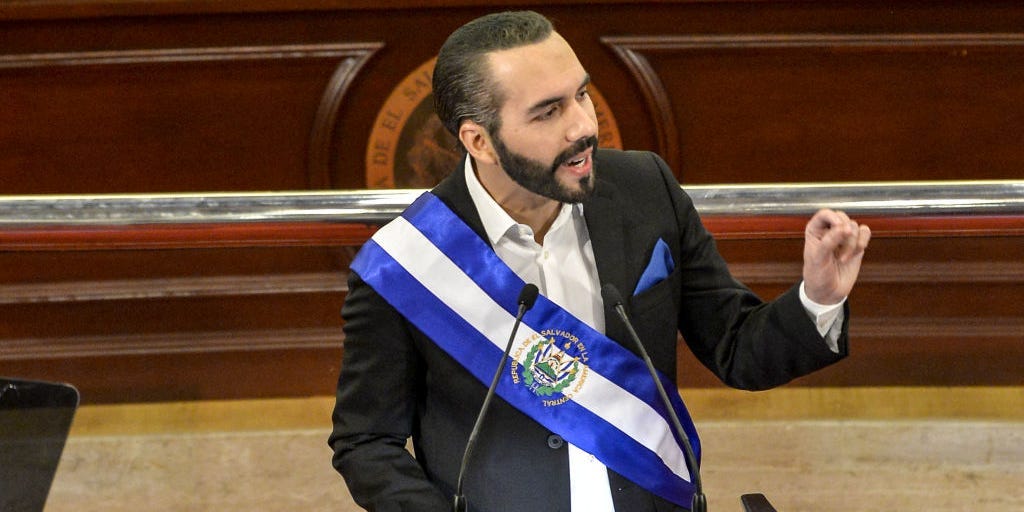
Emerson Flores/APHOTOGRAFIA/Getty Images
- El Salvador has purchased 150 more bitcoins, bringing its total holdings to 700, or roughly $31 million.
- The country bought during the latest dip, as bitcoin slipped below $45,000 on Monday.
- "They can never beat you if you buy the dips," President Nayib Bukele said in a tweet.
- Sign up here for our daily newsletter, 10 Things Before the Opening Bell.
El Salvador, the first country to make bitcoin a legal tender, has purchased 150 more bitcoins, bringing its total holdings of the cryptocurrency to 700, or roughly $31 million, President Nayib Bukele said in a tweet on Monday.
The millennial president said the country bought during the most recent dip as the world's largest digital asset slipped below $45,000 amid a broader cryptocurrency sell-off.
"They can never beat you if you buy the dips," Bukele said in a tweet.
Bitcoin was last trading 7.86% lower at $43,650 as of 8:12 a.m ET.
The purchase came almost two weeks after the Central American country moved to accept bitcoin as its official currency despite criticism from outside observers and the general public.
The morning of the Bitcoin Law's roll out on September 7 was met with protests by hundreds of Salvadorans.
Still, Bukele believes the new initiative will transform the lives of the country's citizen, especially those who rely heavily on remittances to send and receive money from abroad.
World Bank data reveal that remittances to the country made up nearly 20% of its gross domestic product in 2019 - ranking among the highest in the world.
Bukele announced the country's intention to become the first in the world to accept bitcoin as a legal tender alongside the US dollar in June. In the same month, El Salvador passed the law.
To prepare for crypto adoption, El Salvador installed over 200 bitcoin ATMs throughout the country as well as in the US to make remittances cheaper for Salvadorans living abroad.
International organizations including the International Monetary Fund and the World Bank, however, as well as major banks such as JPMorgan and Bank of America, have expressed concerns regarding the country's bold move, citing financial and economic risks.
